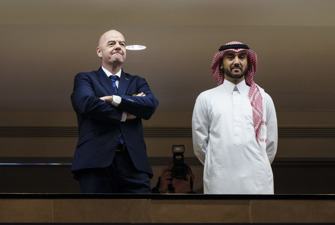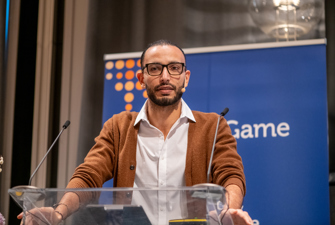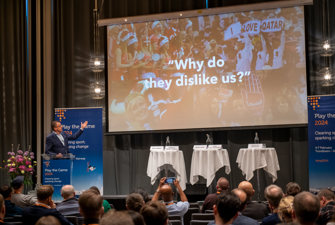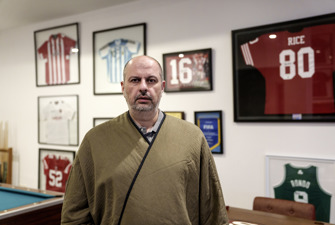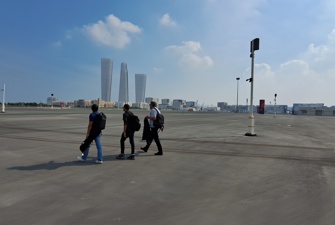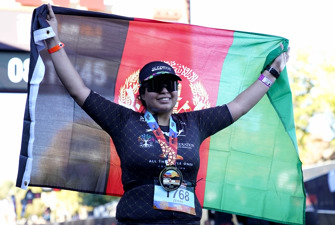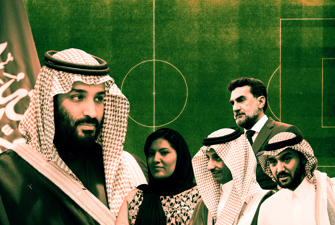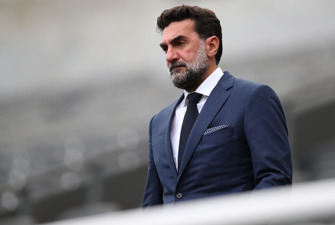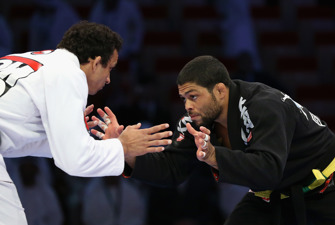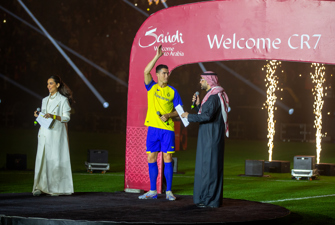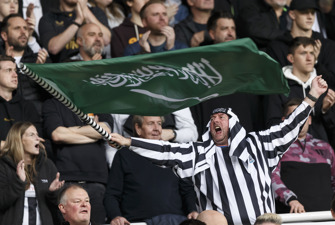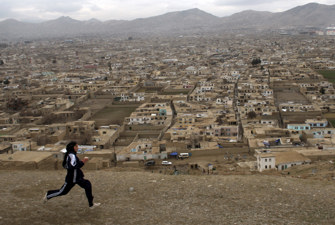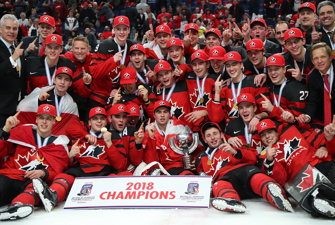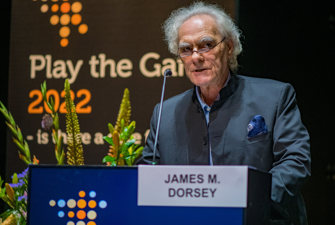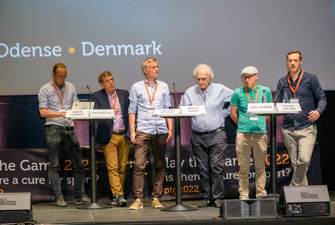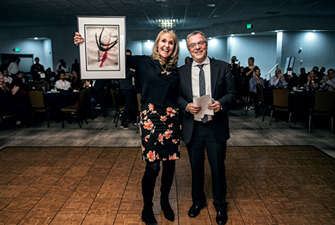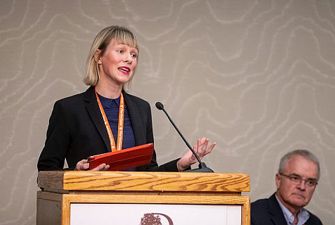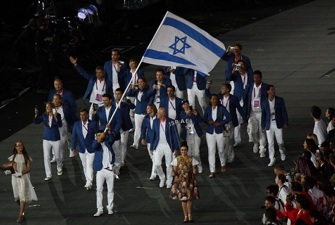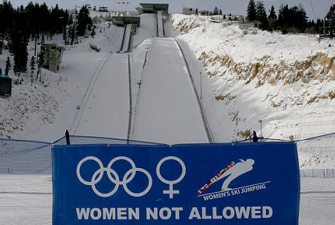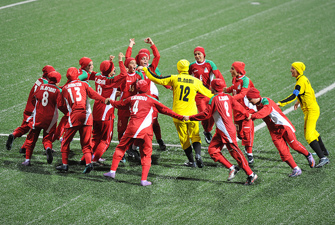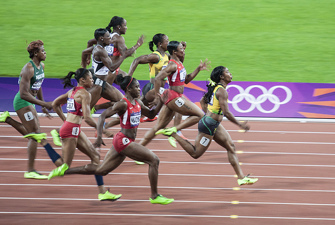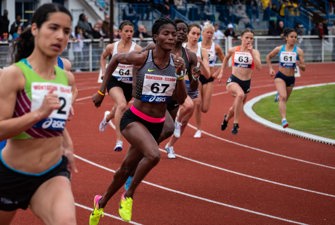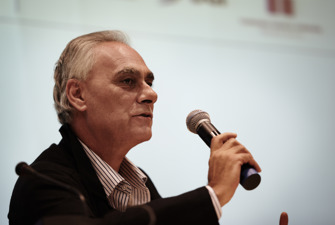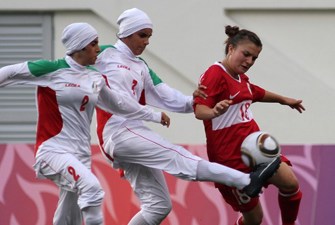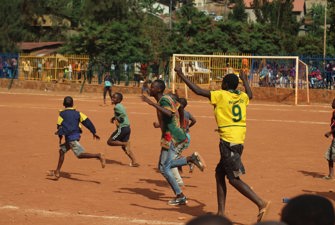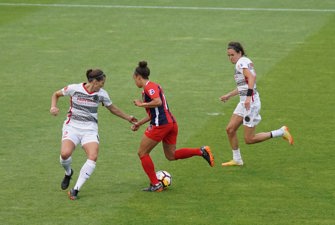In Palestine, women run for their rights
As the fourth annual Palestine Marathon was held this year, it highlighted again Palestinians’ lack of right to movement, as over 100 runners from Gaza were not allowed to participate. Still, its rapid growth and popularity among especially Palestinian women also tell a different story.
When the sun rose over Bethlehem on April first, the streets were already buzzing with life. Families lined up along the sidewalks and police officers tried to direct a few confused drivers off the main roads. In the meantime, thousands of people in white t-shirts with ‘Right to Movement’ written over the chest flocked to the ancient Manger Square in front of one the world’s most famous Christian sites, the Church of Nativity. But though the holy city is often associated with its religious roots, it has for the past four years also become linked to one of the world’s most politically sensitive sporting events, the Palestine International Marathon.
Starting only four years ago with 650 runners, the annual race has grown significantly with a total of 4,300 runners registered this year including one thousand foreigners from 64 different countries. Despite the fact that running is yet not widely common in Palestine the vast majority –and an increasing number – of the runners were Palestinians. They had made the trip from all corners of the West Bank passing Israeli settlements and military checkpoints along the way to run for their own right to movement.
Still, around one hundred Palestinians from Gaza, including last year’s marathon winner and Gaza’s first professional female runner, were barred from arriving at the starting line as none had received the necessary permits from Israel to travel the 80 kilometers from Gaza to Bethlehem.
These obstacles are exactly what the marathon seeks to highlight.
“When we started in 2012 we had two main ideas,” says George Zeidan who has been part of the organising team since the beginning: “First of all, we want to shed light on the restrictions imposed on us by the Israeli occupation, to tell a story that will get the attention of people who might not have much interest in politics but in sports. Secondly, we wish to encourage Palestinian women to participate in the run and encourage them to believe that they can do whatever they’d like to do.”
45 percent female participants
As 85 percent of Bethlehem governorate is under Israeli jurisdiction it is impossible to identify 42 coherent kilometers controlled by the Palestinian Authority. The marathon runners, therefore, had to venture out on a route of 21 kilometers twice. They ran through two of Bethlehem’s refugee camps and along the eight-meter tall concrete wall that zigzags through the city. They passed several Israeli military watchtowers and saw some of the 19 Israeli-constructed settlements, which are slowly taking over more and more of Bethlehem governorate despite being considered illegal according to international law by the UN and most of the international community.
Of the marathon runners, only about 10 percent were Palestinian women, but over one thousand lined up at the start line for the 10-kilometer race among them young teenage girls as well as mothers with strollers and older women. Some wore t-shirts, others headscarves – even a few wore a niqab.
With 45 percent of the runners being women, the Palestine Marathon has one of the highest female participation rates in the world.
“We didn’t do much to specifically target women, but they signed up in big numbers from the beginning,” says Signe Fischer Smidt, who is one of the two Danish women who founded the marathon.
“It’s solely the women themselves who take on the streets and insist on running. This breaks down stereotypical images of women in the Middle East,” she adds.
Fischer Smidt believes that the women might find inspiration from seeing that the majority of the marathon’s organising team is female but adds that another important factor is the many new running groups, which were founded after the first marathon. She sees this as one of the biggest successes of the marathon.
“Running is so much more than a marathon because you have to train to it in communities where it isn’t important who is the fastest but instead to support each other,” she says adding that all the communities have both a male and female leader.
Running communities create a safe framework
Zeidan, who is a leader in the local running group in Bethlehem, believes that these communities provide a safe framework for women to tie the laces of their running shoes and conquer the streets. He has seen the running groups grow rapidly over the past few years and inspired new groups including one in Gaza.
“We see this strong momentum of more and more people joining us and it says a lot that throughout our groups the majority are women,” says Zeidan. In Bethlehem, the group meets early Friday morning in a secluded residential area to avoid too much attention and minimize the risk of sexual harassment of the girls. But Zeidan hopes the group can soon also run inside the city.
He points out that in the more secular city of Ramallah, the political capital of Palestine, the running community meets twice a week in the early evening and runs through the city’s main streets – something unthinkable only a few years ago.
“We want to feel safe but also to have people see us run in the streets in order to create change in the society. We have affected a lot of people who run with us and have gotten support from their families, sometimes even getting them to join – in a few cases even the mothers join us,” he says laughing.
Sport needs security - and money - to thrive
Jawwad Awadallah from Palestine Olympic Committee is certain that running as well as sports in general is vital to foster social as well as political change.
“Sport is a strong language in itself in the same way as art and music,” he says: “Everyone around the world cares about sport and therefore it can convey messages between people. We want people abroad to realize that Palestinian youth cares about sports just like they do and deserve life and freedom to practice it just like anyone else.”
The Palestine Olympic Committee works to make sports activities available for young Palestinian boys and girls throughout the West Bank and Gaza – especially in rural areas and in camps where resources are scarce. But this is no easy task.
The ongoing Israeli occupation severely restricts the development of professional sports, Awadallah explains. Athletes are frequently prevented from traveling abroad and sporting teams from even playing each other inside the Palestinian territories. When a football team from the West Bank went to Gaza to play a match in 2015 it was the first time in 15 years.
In other cases, matches and sporting events are interrupted by tear gas or clashes between Israeli military and Palestinian youth, as many stadiums are located close to military checkpoints, refugee camps or Israeli settlements. In one case a game was called off because Israeli residents of a nearby settlement demanded the floodlight be turned off, Awadallah recalls.
“For sports to thrive you need security – and money,” he says.
Years of conflict and continuous incidents of violence does not make investments in sports an area of priority for the Palestinian government or the large number of international development agencies working in Palestine. The lack of an Olympic size pool, professional running tracks or facilities for gymnastics or athletics makes it hard to foster interest and skilled, professional athletes in these fields.
“Everyone in Palestine loves football because it doesn’t require much more than a ball and not necessarily much space,” says Awadallah, which is also why he believes that running will gain even further popularity.
“This is Palestine too.”
This year, Palestine International Marathon was almost exclusively in the hands of Palestinian organizers including the Palestine Olympic Committee and hundreds of volunteers. For Fisher Smidt, the race has become a greater success than she had ever dreamed of but according to her, the most important thing is the fact that the annual event has developed into something close to a national festival in an area with few things to celebrate.
“My greatest joy is to see all these young people who are just having a party and see it as an opportunity to talk about Palestine. Few Palestinians will say ‘I run for my right to movement’ – but they will say ‘this is Palestine too’,” she says.
